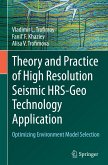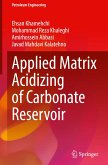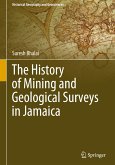This book outlines the scientific, methodological and practical foundations for applying High Resolution Seismic HRS-Geo Technology in order to build detailed 2D and 3D seismic acoustic models in the form of acoustic impedances (AI) and reflection coefficients (RC) and the most important geological indicators. The monograph is a continuation of the book by the same authors "Oil and Gas Reservoir Prospecting and Exploration: High-Resolution Seismic HRS techniques and technology".
Particular attention is paid to improving the process of searching for AI and RC models using the vector of objective functions, in which various types of residuals between real and model data are iteratively calculated. The well-known criteria for predicting the oil and gas potential of productive deposits from the standpoint of the system analysis principles and the set of geological indicators found from the HRS data are analyzed. The features of solving the main seismogeological problems using HRS-Geo Technology modules are shown, illustrated by numerous examples, and using a special (optimal) processing graph and a set of additional seismic record regularization procedures that provide maximum detail of high-resolution seismic data. The book is meant for scientists and specialists involved in in-depth complex geological interpretation of seismic data in the search and exploration of oil and gas deposits, as well as students of geophysical and geological specialties, graduate students of these specializations and developers.
Particular attention is paid to improving the process of searching for AI and RC models using the vector of objective functions, in which various types of residuals between real and model data are iteratively calculated. The well-known criteria for predicting the oil and gas potential of productive deposits from the standpoint of the system analysis principles and the set of geological indicators found from the HRS data are analyzed. The features of solving the main seismogeological problems using HRS-Geo Technology modules are shown, illustrated by numerous examples, and using a special (optimal) processing graph and a set of additional seismic record regularization procedures that provide maximum detail of high-resolution seismic data. The book is meant for scientists and specialists involved in in-depth complex geological interpretation of seismic data in the search and exploration of oil and gas deposits, as well as students of geophysical and geological specialties, graduate students of these specializations and developers.








